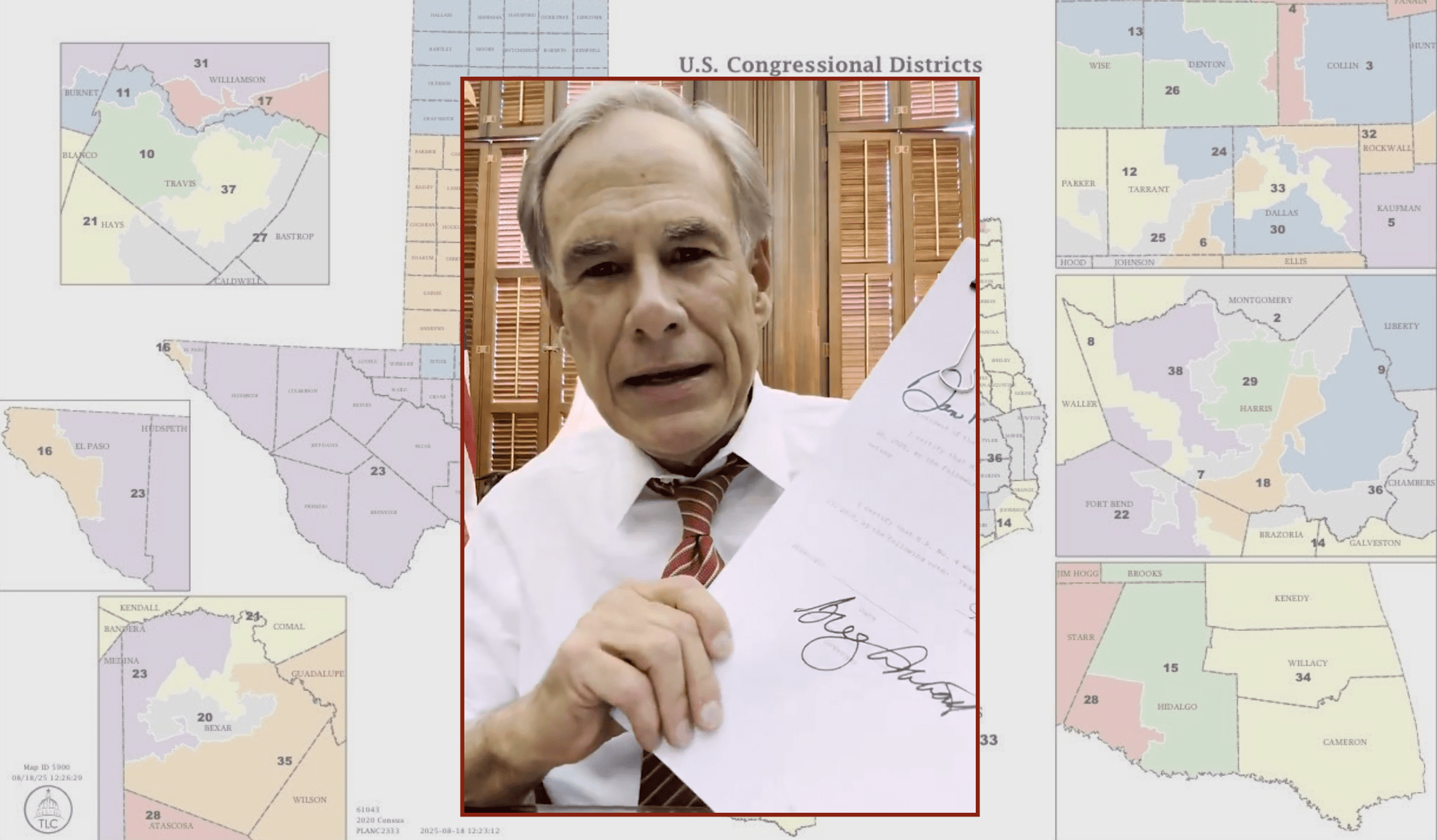For years conservatives across Texas and the nation have bemoaned the revolving door in politics that allows lawmakers to become lobbyists and lobbyists to become lawmakers.
Texas’ latest example? Ex-State Rep. Wayne Smith (R–Baytown).
After lobbying for his own civil engineering firm that specialized in municipal water projects, Smith successfully ran for the Texas House in 2002. Once in the chamber, Smith’s connections with the lobby allowed him to rise quickly though the process, being named a committee chairman in his first legislative session.
As a lawmaker, Smith most recently chaired the powerful House Licensing Committee. Given the committee’s vast jurisdiction over regulations and licensing law, his committee was one of Austin lobbyists’ favorite committees – and he was one of lobbyists’ favorite lawmakers.
As Houston blogger David Jennings described Smith:
“He [was] the sort of big business, old school Republican that doesn’t understand movement conservatism. And that is exactly what his endorsement list represents – mostly people making their living off of the government who cringe when they hear people wanting to slow the growth of government or increase transparency and freedom.”
However, despite lobbyist cash, and his own desperation, Smith was defeated in the 2016 Republican primary and runoff election by a conservative opponent.
Although Smith no longer holds office, he’s already back in Austin. Except this time he’s not getting campaign checks, but personal checks.
According to forms filed by Smith with the Texas Ethics Commission, the former legislator already has a sizable lobby portfolio that lists a dozen clients, including five of Harris County’s Emergency Services Districts, local government agencies that provide fire protection and other services.
Records obtained by Texas Scorecard indicate Smith is working with an ex-lawmaker turned lobbyist he knows very well, Fred Bosse.
Bosse and Smith have been close for over twenty years. During his time as a lobbyist, Smith worked with Bosse on legislation for his clients.
After being involved in a 1996 car accident that resulted in the death of the other driver, Smith employed Bosse and fellow Democrat lawmaker and trial lawyer Craig Eiland in an unsuccessful attempt to take more than $600,000 from the man’s widow and children on the grounds of “mental anxiety” and “mental anguish.”
A few years after the case settled, Bosse declined to seek re-election and effectively handed the seat to Smith. Then Bosse set up shop as a lobbyist.
Now he’s brought his old buddy back on board.
In emails obtained through an open records request, Bosse pitched the ESD’s on bringing Smith on as a lobbyist in the beginning of November.
“I thinkg [sic] that I have a way to deal with next session and my travel problems. Wayne Smith lost his election and we have been discussing doing some work together. He has chaired County Affairs and carried our legislation on the emergency vehicles. He still has very good relationships with the House leadership.
I would propose doing the same contract as before, a six month guaranteed contract. I would still be primarily responsible and split the fees with him for doing some of the leg work. The past couple sessions the fee for each district was $1,250.00 per month. My proposal this time would be $1,500.00 per district.”
While Bosse lives in Houston and must commute to Austin in order to lobby, Smith apparently doesn’t have that problem even though he hails from the same area.
Why?
Wayne Smith still owns an Austin condo with expenses paid from a campaign account which still has more than $40,000 in it.
Smith pays for much more than just his housing with old campaign dollars.
Despite his campaign ostensibly closing shop after his defeat in May, Smith still paid for campaign telephone and fax lines, a campaign cellphone, a campaign iPad data plan, and a newspaper subscription for his campaign office all the way through December (the end of his most recent report).
Lawmakers should end the revolving door problem in Texas and put an end to legislators using their campaign accounts to launch lobby practices.
Instituting a cooling off period before former lawmakers can enter the lobby and freezing their campaign account spending during the legislative session should be a mandatory part of ethics reform.
That reform is one of four major pillars included by State Sen. Van Taylor’s (R–Plano) in Senate Bill 14, his landmark ethics package.





